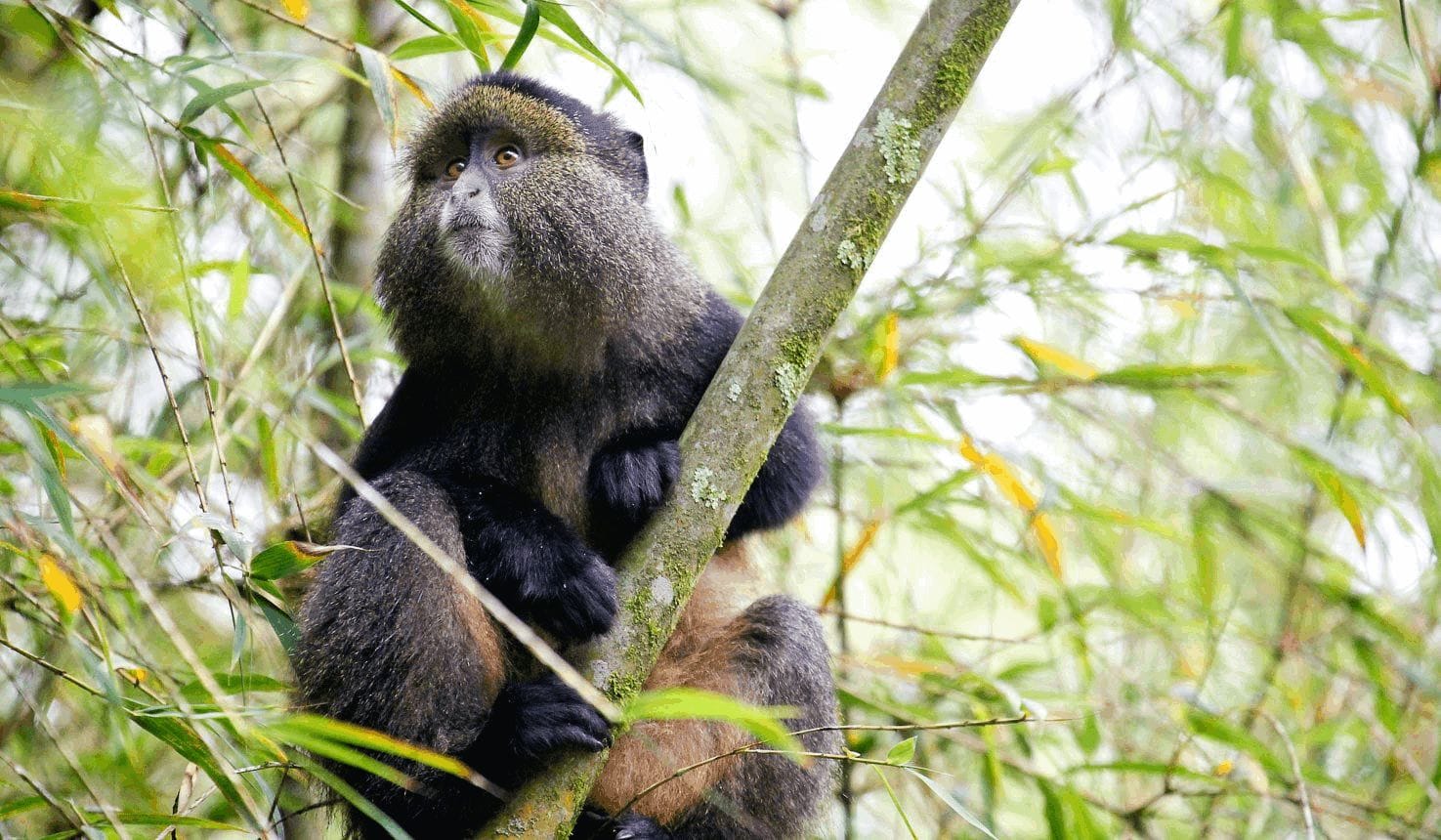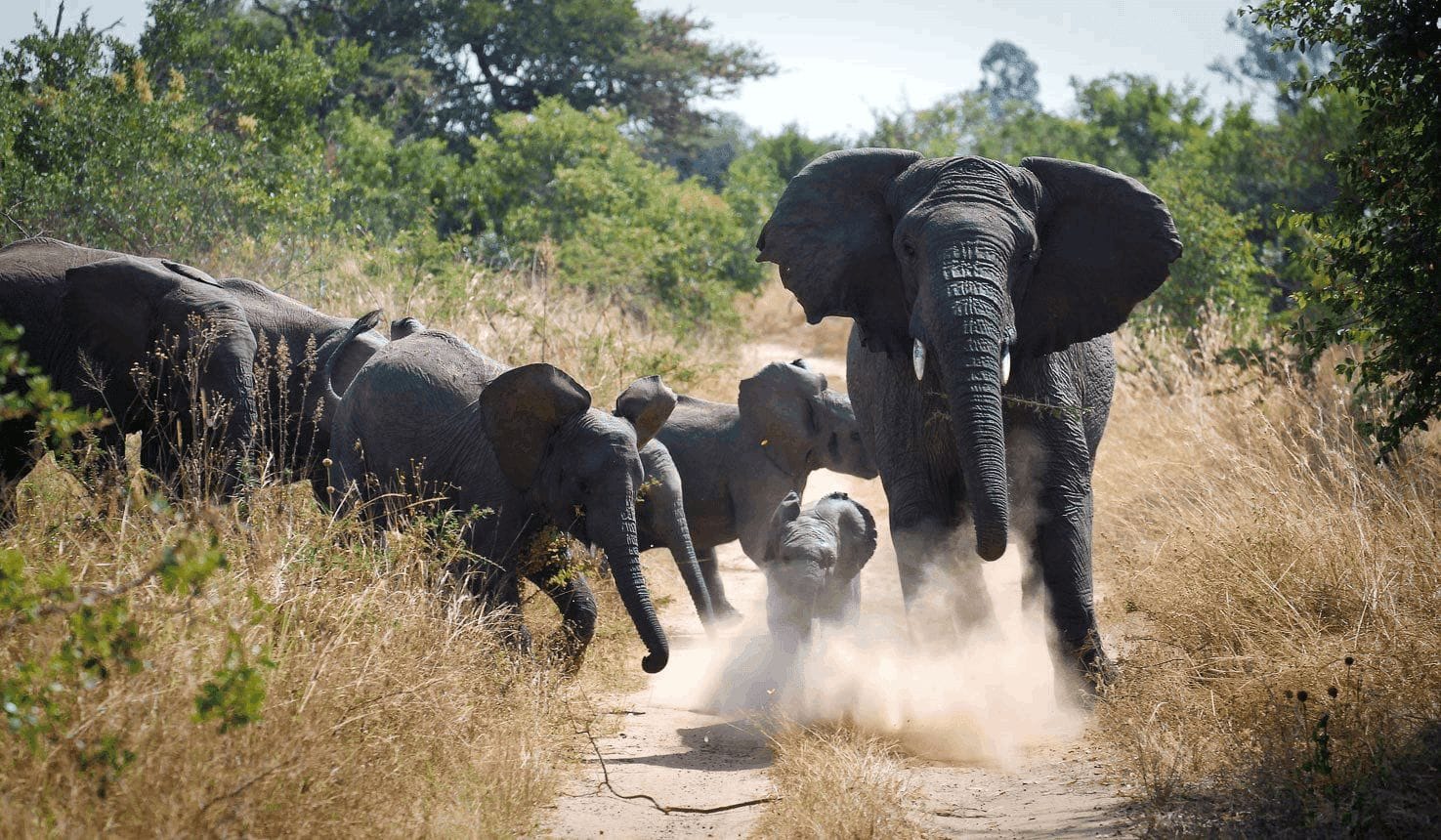Volcanoes National Park, in northwestern Rwanda, protects a section of the Virunga Mountains, a volcanic range renowned for its dramatic landscapes and extraordinary biodiversity. The park is internationally celebrated as one of the best places in the world to see endangered mountain gorillas in their natural habitat, alongside other primates such as golden monkeys.
Spanning rainforest, bamboo zones, alpine moorlands, and five dormant volcanoes including Karisimbi, Bisoke, and Sabyinyo, the park offers stunning scenery and diverse ecosystems that also shelter forest elephants, buffalo, and more than 200 bird species.
Volcanoes National Park is deeply tied to conservation history, as it was the base of Dian Fossey’s groundbreaking gorilla research in the 1960s, which brought global attention to gorilla protection. Today, it remains a hub for eco-tourism and cultural encounters, with activities ranging from gorilla and golden monkey trekking to volcano hikes and visits to the Iby’iwacu Cultural Village, where travelers experience Rwanda’s traditions and heritage.
Key Features
- Location: The park is situated in the far northwest of Rwanda, covering the steep, rainforest-covered slopes of five Virunga volcanoes.
- Wildlife: It is home to a significant portion of the world’s endangered mountain gorilla population, as well as the rare golden monkey. Other species include various primates, bush pigs, duikers, and over 200 bird species.
- Landscapes: The park features lush rainforests and bamboo forests along with dramatic volcanic scenery, including the Bisoke volcano with its crater lake.
Activities & Attractions
- Gorilla Trekking: This iconic activity involves guided treks to observe mountain gorillas in their natural habitat.
- Golden Monkey Trekking: Visitors can also trek to see endangered golden monkeys.
- Volcano Climbing: You can hike volcanoes such as Bisoke and Karisimbi, the highest peak in the Virunga range.
- Cultural Tours: The park offers cultural experiences, including visits to Ibyiwacu Village, where you can learn about local Rwandan traditions.
- Dian Fossey’s Legacy: The park was the base for Dian Fossey’s work, and you can visit the Karisoke Research Center and her grave.


